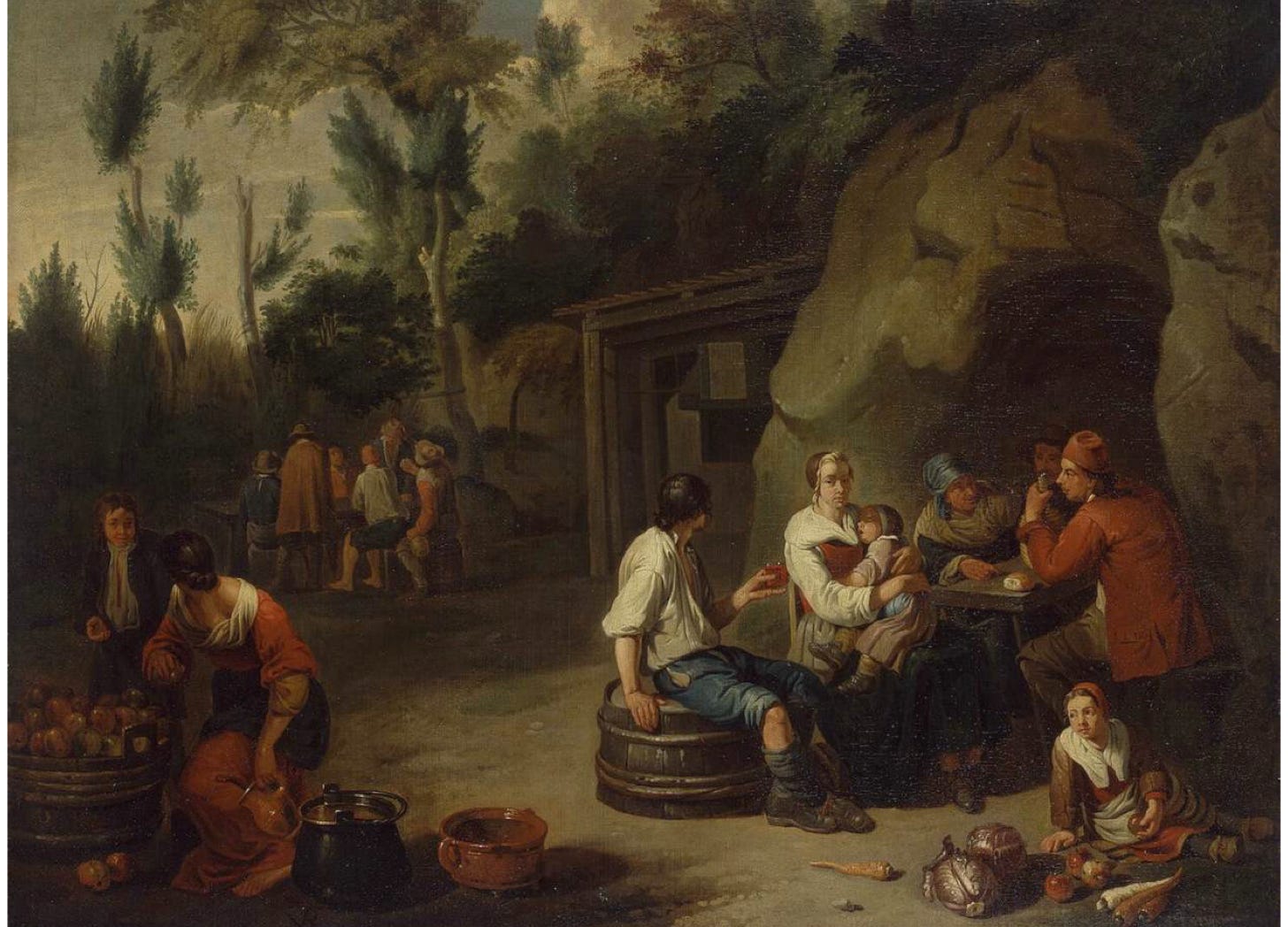Extra Muros continues the serialization of Pardon My French, a light-hearted look at some of the French expressions that readers might encounter while wandering about the Anglosphere.
In the days of the Ancien Régime, when the titles monsieur (“my lord”) and madame (“my lady”) were reserved for actual lords and ladies, the proper way to address members of less exalted social groups was mon bonhomme (“my good man”) and ma bonne femme (“my good woman.”) Thus, when Francophone Franklin fans went looking for a somewhat ironic translation for “poor Richard” (as in Poor Richard’s Almanac), they came up with le Bonhomme Richard. (When used as a common noun, richard means “rich man.”)
A bonhomme necessarily displayed bonhomie. The latter word, which originally encompassed all of the qualities associated with life on the smokey side of town, soon came to mean “characterized by good nature and love of fun in a folksy kind of way.” “Zay may be poor,” said the people of the powdered wig persuasion, “but zay are ‘appy.”
After the French Revolution, which suggested that some bonhommes were not as well supplied with bonhomie as had been presumed, the traditional titles of commoners acquired new meanings. In France, la bonne femme - which was increasingly abbreviated as la bonne - came to mean “housemaid.” In Montréal, where a mendicant once addressed me as Monseigneur, bonhomme evolved into a handy way to say “abstract representation of a person.” Thus, the little luminous stick figure who, when white and walking, tells people that it’s safe to cross a street, is called a bonhomme and a snowman bears the moniker of bonhomme de neige.
Note: The links will take you to a translation program, whether Google Translate or DeepL, where an authentic French robot will speak the word or phrase in question.
For Further Reading:





